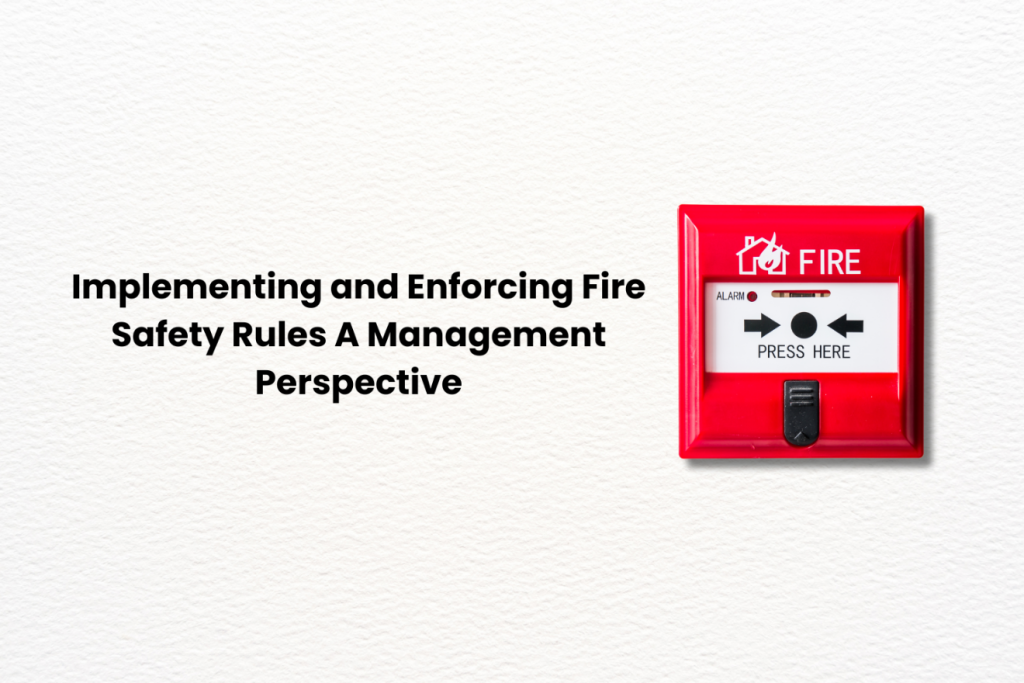Ensuring a safe workplace isn’t just a legal obligation—it’s a moral one, protecting employees, clients, and property.
Whether you manage a small office or a large corporate space, understanding fire safety protocols is essential to keeping everyone protected.
By the end, you’ll have a practical roadmap for ensuring your office meets the highest fire safety standards and safeguards your most valuable assets: your people.
Why Every US Company Needs Fire Safety Protocols
Electrical malfunctions, kitchen mishaps, overloaded circuits, or improper storage can all ignite dangerous workplace fires.
Companies that prioritize fire prevention demonstrate responsibility, enhance employee trust, and maintain business continuity.
That’s why understanding the full scope of fire safety—training, equipment, documentation, and inspections—is essential for every organization.
How Fire Brigade Training Prepares Offices for Emergencies
Fire wardens act as safety leaders, guiding colleagues to exits, checking on vulnerable individuals, and ensuring no one is left behind.
Training requirements vary depending on local regulations, building size, and occupancy type.
Well-trained fire wardens not only enhance safety but also help organizations pass compliance inspections, reducing legal and insurance risks.
How to Prepare for Fire Safety Certification and Renewals
These certifications confirm that the office has adequate fire alarms, extinguishers, evacuation plans, signage, and trained personnel in place.
Check that all fire extinguishers are inspected and tagged, alarms are functioning, and exit routes are unobstructed.
Proactive preparation not only simplifies renewals but also ensures continuous protection for your workplace.

How to Keep Your Office Fire-Safe Every Day
US offices that prioritize ongoing safety measures are less likely to face emergencies and better prepared when incidents occur.
Ensure that emergency exits remain unlocked, clearly marked, and free of obstructions at all times.
Employee engagement matters too.
Legal and Insurance Implications of Fire Safety Compliance
Non-compliance can lead to fines, lawsuits, business license suspension, or even criminal liability if negligence results in harm.
Insurance coverage is also tied to compliance.
By prioritizing fire safety, businesses demonstrate responsibility and reduce the risks of costly legal and financial setbacks.

Final Thoughts on Office Fire Safety
US companies that take fire safety seriously strengthen their resilience, enhance employee confidence, and minimize operational risks.
By investing in fire warden training, maintaining up-to-date certifications, and conducting regular safety audits, organizations position themselves for long-term success.
With the right approach, your company can navigate challenges confidently and ensure a safer, more secure future for everyone.
Your Questions Answered: Fire Safety in US Businesses
Do all staff need fire safety training?
Larger offices may require multiple wardens to cover all floors or departments.
How often should fire safety certifications be renewed?
Some certifications also need updates after renovations, equipment changes, or occupancy shifts.
What triggers most workplace fires in the US?
Routine inspections and employee awareness help prevent these hazards.
How does fire safety affect insurance coverage?
Staying compliant protects both your business and your financial stability.
How do I write an effective workplace fire plan?
Drills and refresher training help keep the plan effective and actionable.
legislação de incêndio no Brasil leia mais aqui